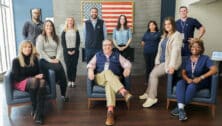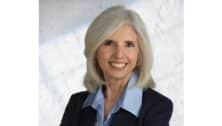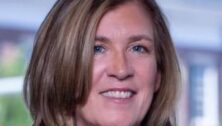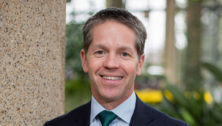Chester County Leadership: Jessica Chappell, Executive Director, Safe Harbor of Chester County
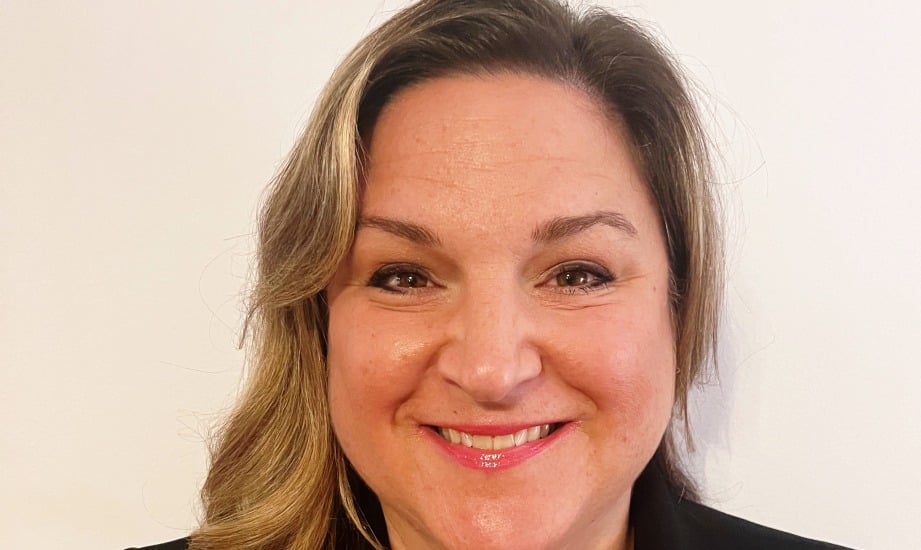
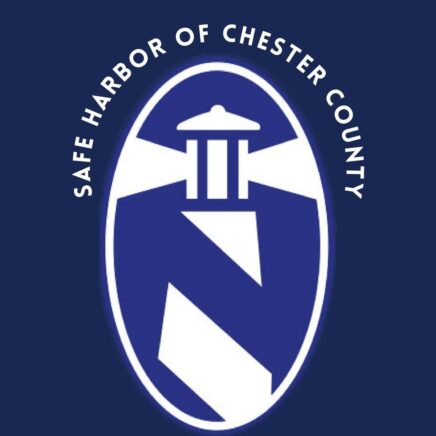
Jessica Chappell, executive director of Safe Harbor of Chester County, spoke to VISTA Today about growing up in West Bradford, Chester County, and her lifelong mission to serve others in need. She talked about turning down a spot and Penn State’s main campus to go to college near the beach and about honing her work ethic early on by waitressing in busy beach restaurants during the summers.
Chappell also discussed her 23-year career at Main Line Rehab Associates, where she worked her way up from outreach coordinator to executive director and her new position at Safe Harbor. In her new role, she aspires to build relationships and networks of support within the community and to positively influence the risk chain that leads to homelessness. Jessica emphasizes that homelessness is a complex issue influenced by economic, social, personal, and community factors.
Where were you born and where did you grow up?
I was born the oldest of three children in Drexel Hill, Delaware County. We moved out to the country, West Bradford, in 1980 when I was in fourth grade.
What do you remember about growing up in West Bradford that stays with you?
My family started fresh when we moved out to West Bradford. I remember being amazed that there were deer and cows in the field across the street from my school. We had a gaggle of neighborhood kids that chased after frogs, got dirty, and fell asleep to the sound of crickets and tree frogs.
It was a wonderful place to grow up. The first house that I bought was only 3 miles away from my childhood home in West Bradford and I am so grateful my kids had a similar childhood.
What sports did you play in high school?
I played club soccer and field hockey but not for the high school team- I was not good enough! I was also a music person. I sang and took voice lessons for a long time. I was in all of the high school musicals.
Do you have a favorite memory from the plays you were in?
In high school, my favorite was an Italian musical called “The Most Happy Fellow.” My family really got a kick out of it. I liked performing and being in front of people.
What was your first job?
I always worked in high school. I started off as a busser at Coppa 82 in Thorndale because my dad knew the owner. I stayed in the restaurant field through college because waitressing was a great way to make money as a young adult.
But you were adventurous. You went out and explored the world.
When I grew up, my family had a beach house in Ocean City, New Jersey. I have always been very connected to the water and the beach. I went to college close to the beach, so when summertime came, a bunch of friends would go to a different beach town and find the busiest seafood restaurant around and that’s where we would work. We would rent a house and work, go to the beach, and have fun.
What lessons did you learn from those bussing and waitressing jobs that still guide how you work today?
Restaurant work is demanding work. You have to always give 100% every shift. Being a waitress at such busy, beach town restaurants taught me how to prioritize and multitask. I remember going to bed and thinking, “Sugar for table 10!” It was still running through my head. “Table 14 needs a fork!” “I forgot the salad!” It works your memory.
And, obviously, customer service. Hustle was a big part of it, too. I’m competitive in spirit, so I wanted to make the most money and have the best job at the best restaurant. I liked staying late and picking up all the late tables that would come in. I learned how to work hard, manage unhappy customers, and work closely with people from all walks of life.
What kind of music were you listening to in high school?
I was a little bit rock and alternative, but nothing crazy. The Pixies, Stone Temple Pilots, Red Hot Chili Peppers, Veruca Salt – angsty ’90s music.
Did you go to any concerts?
Tori Amos was one of my favorite singers – I saw her 15 or 16 times throughout high school and college. I was completely obsessed with her. I loved U2 and Madonna, too.
Do you have a favorite concert experience?
Growing up, I would say U2. I managed to get very close to Bono! Most recently, Chris Stapleton has been my go-to concert. Any time he is in the area I make a point to go see him!
Where did you end up going to college, and why there?
I had a lot of opportunities. The biggest one was Penn State, main campus. I also got into a five-year MPT program at the University of Scranton.
But I wanted to be at the beach, so I went to Richard Stockton College of New Jersey. Stockton was about 25 minutes from my family’s house at the beach, and it was beautiful – in the pine barrens, a small liberal arts school.
I went there thinking I was going to be a physical therapist. But as things go when you are younger, I changed my mind about Physical Therapy and graduated with a Bachelor’s in Biology.
Looking back, was Stockton a good choice for you?
I think so. For me, Penn State was a little overwhelming, and I felt like I would get swallowed up there. Luckily, my little sister went to Penn State so I still got to visit Happy Valley! I remember having a “this is the one” feeling when I toured Stockton. So, I do think I made the right choice.
Looking back over your career, who were the people who saw promise in you and gave you opportunities?
The main person was Rita Carroll, the president and owner of Main Line Rehabilitation Associates, where I worked for 23 years. I graduated from college and I remember looking at the newspaper and circling jobs that sounded interesting. I didn’t have a clear pathway with biology. I knew I didn’t want to work in a laboratory. I knew I loved helping others. All the jobs that I had circled were related to the human/social services field. I was a little lost as to how a biology degree was going to help me get a job in human services. Turns out, I ended up working in the neuro-rehabilitation field and specializing in brain injury for over 20 years.
I went on one interview with Rita and that was it. My first job was as the outreach coordinator at Main Line Rehab Associates in 1998. I was right out of college. As time went on and I took on new positions and responsibilities, I had the opportunity to become the executive director there and served in that capacity for about 16 years.
I also realized along the way that I wanted to continue my education and keep learning new ways to help others. I went to graduate school in the evenings while I worked and received my Master’s degree in Clinical Psychology from West Chester University.
The opportunities I had at Main Line Rehab really shaped me and my career path. I am eternally grateful for that!
What did Rita see in you in that interview?
I was right out of college and so nervous! But Rita and I seemed to think alike in many ways from the beginning. I felt like I could see her vision. I tend to be more extroverted and was also always a good talker. Maybe Rita thought that she could put me in front of people and I wouldn’t be scared, that I could talk the talk.
It’s that customer-facing restaurant experience, right?
Yes, I think partly so. When I first started my professional career, I think my boss knew that I would try to just roll with things, even if I was unsure at first. Looking back, I know that was the right thing to do because it built my confidence. I needed to go out there and talk to people and learn what I wanted to say and how to say it. I was eager to learn and gradually climbed the ranks in terms of my roles and positions there.
Besides Rita, were there other people who saw promise in you and opened up doors?
Main Line Rehab was purchased in 2020 by a company called Neurorestorative. That was like starting over, even though I had been there for quite some time. There were definitely people on the Neurorestorative team who gave me the opportunity to make the integration and acquisition go as smoothly as possible.
There were many, many people on my team who had faith in me, in terms of my advocacy for keeping our model of service and our identity as much as we possibly could. There were times during this process when I wondered where I was going and how I would get there. Leaving Neurorestorative was a big step, but one I knew I had to make. I learned, and my team learned, that sometimes change can be a really good thing! I honestly feel like I have been preparing for my current role at Safe Harbor all of my life.
How did you come to Safe Harbor?
I have sort of a kaleidoscope of a background in terms of what I’ve done and what I’ve specialized in. When Main Line Rehab was sold and became Neurorestorative, I was determined to stick it out. I deeply believed in what we were doing. I wanted to try to sustain that through the integration. Then COVID hit and everything changed! I stayed for about two and a half years until August 2022. It was certainly a crazy time for us and I am proud of the work we did throughout COVID shutdown not only by continuing to serve our clients but also by keeping about 100 employees working.
Once things settled, I felt comfortable and thought it was time for me to move on. It was a little bit challenging to see so much that we had grown and loved be changed and to have to be that agent of change.
I found the Safe Harbor position through Indeed. I had five interviews, and the more I met with them, the more it was clear to me that this was exactly what I was meant to do. There was a synergy of thought, this realization that my experiences working with disenfranchised and marginalized individuals my entire career was leading me to Safe Harbor. It made this connection for me- from my days as a college intern at the Whitman Walker Clinic in 1997 in Washington DC helping on needle exchange truck and doing HIV prevention at homeless shelters to now. Here I am. I started on May 30.
What is Safe Harbor’s mission?
Safe Harbor is a non-profit organization whose mission is to provide emergency housing, food, and access to support services in a structured and enriching environment for unhoused single men and women in Chester County. At our maximum capacity, we shelter 20 women and 20 men.
We provide a daily community lunch that’s open to both our residents and anybody in the community. We offer 3 meals including a nutritious hot dinner daily, in addition to case management services, referral to other support agencies, and various resources.
There is a rising crescendo of issues in Chester County related to poverty and homelessness. We live in the wealthiest county in Pennsylvania, but affordable housing continues to dwindle. Our residents face a myriad of issues that create many barriers to real-life success. If we mobilize our resources, our community, our village- we can solve this. That is our mission.
You’ve been at Safe Harbor for several months. What are you focused on? What are your priorities?
We have a long-term vision of creating a Safe Harbor that serves our community beyond being a homeless shelter. Though the value of offering consistent and trauma-informed care and support to our residents is paramount, we also want to provide enriching programming that will help residents build the skills necessary for success once they leave us. We want to focus on positive long-term outcomes for each individual who walks through our doors. We hope to be engaged and give back to the community for all that they do for us.
Ultimately, we want to work beyond being a temporary place for unhoused individuals to stay for up to 120 days. I hope that in time we can positively impact the many factors that lead to homelessness and poverty. We want to focus on the various health and societal determinants that lead to people becoming homeless. Part of that is creating mental health resources, substance abuse resources, employment resources, and formal partnerships with community members so that the people who come through our doors are getting much more than just a place to lay their heads.
As far as short-term goals, we’ve got a lot of big things happening here. Bringing on more talented staff has definitely been a focus, and we have some absolutely amazing people working at Safe Harbor. We’re working on updating many of our processes and procedures to bring us up to speed with best practices in human resources and other business standards.
The other big goal is creating structure and programming around the support that we provide. We want to reinvigorate our presence in the community, so focusing on re-engaging with our partners, stakeholders, and volunteers and revitalizing relationships is also a big focus.
One thing that has been interesting since I’ve been here is that we have such a wide kaleidoscope of people who come through our doors. We have men and women who get up and go to work every day. We have young adults who are homeless because of their sexuality or gender identification. We have individuals that were in prison that can’t return home. We have elderly individuals that are in their late 80s. They all have a story. We are striving to humanize each and every resident who comes to our door.
With homelessness on the rise and affordable housing becoming even further out of reach, there is definitely a crescendo of issues that we will be facing. All it takes is one thing to not go your way. If you lose a spouse, get sick, injure yourself- there are so many factors that lead to homelessness.
Jessica, what is something big that you’ve changed your mind about over the last five or 10 years?
As far as social issues, I’ve always believed in the greater good. I’m wired to help people. So, not much has changed in terms of that.
When I was in college I did an internship in college in Washington, D.C., at HIV/AIDS clinic. Each day I walked past so many homeless individuals. All of my other college friends were up on Capitol Hill, interning for senators, wearing fancy clothes to work, and feeling great. I didn’t want that. I preferred to be in pockets of DC that no one saw, helping people.
That was a turning point for me in terms of how I viewed the world. I knew I wanted to be an advocate in some way, but I didn’t know what that meant. I was on needle exchange trucks. I went out and did health and sex education at halfway homes and homeless shelters to stop the spread of AIDS.
I was in over my head, initially, and it was a turning point for me because I realized I didn’t want to be pushing paper. I wanted to be the one with boots on the ground. It was also a pivot for me in terms of understanding the risk chain of poverty, homelessness, and disability.
It’s a crazy world, and you’ve seen some pretty dark things in your work. What keeps you hopeful and optimistic, Jessica?
One is that I want to build a better world for my three teenage children. We have a responsibility to leave this world a better place, whether it’s the environment or how we treat people.
The other thing that I hope for is that we’re able to help individuals who’ve been marginalized their whole life to have independence and quality of life, whatever that looks like.
This is not an easy task. But I am up for the challenge.
Finally, Jessica, what’s the best advice you’ve ever received?
Early on in my time working with Rita Carroll, she was giving me a pep talk before a big presentation I was doing. She said something along the lines of, “You’re good at what you do because you believe in what you do. If you believe in what you do, you’re going to be good at it and good things are going to happen.”
That stuck with me because it was true. I did believe in what we were doing and saw that it worked. That helped me want to push even more when I was up in Harrisburg advocating for services, access, or funding for best practices. I really believed that the services we were providing would help those we were serving to lead more productive, independent lives.
I’ve taken that with me my whole career. It’s important for me to do something I believe in. When you’re doing something you love, it’s going to show. I hope to carry this advice and Safe Harbor’s mission forward for many, many years to come.
Connect With Your Community
Subscribe to stay informed!
"*" indicates required fields
































![95000-1023_ACJ_BannerAd[1]](https://vista.today/wp-content/uploads/2023/03/95000-1023_ACJ_BannerAd1.jpg)












